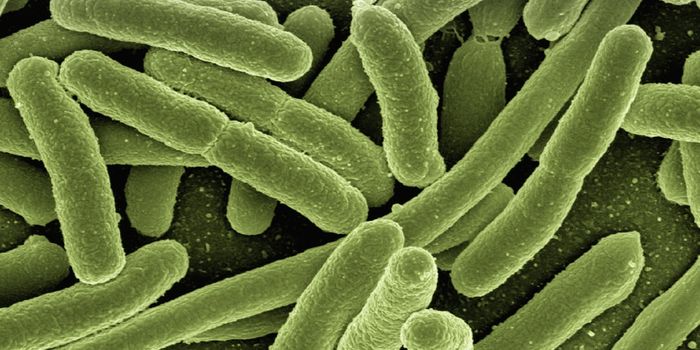Mom's Microbiome Impacts Gene Expression in the Fetus
The human gut microbiome affects our health and well-being, and the microbiomes of expectant mothers has been shown to affect their offspring. A new study has demonstrated that changes in the maternal microbiome and the metabolites generated by that microbiome can lead to alterations in the expression of genes in the fetal brain, intestine, and placenta. This study, which used mouse models in which there were no microbes, or a normal microbiome, has been reported in BMC Biology.
Mice with normal microbiomes were raised in the usual way, while germ-free mice that have no bacteria were raised in a sterile environment. In the offspring of mice that had no intestinal microbes, there were lower levels of immune gene activity and less expression from genes that have been linked to host-microbe interactions. Genes in the brain that have been associated with nervous system function and development were also less active in the fetuses of germ-free mice. The expression of pregnancy-regulating genes in the placenta also changed.
Differences in gene expression were particularly pronounced in male offspring, suggesting that they are more vulnerable to the influence of the maternal microbiome.
Gene activity was also found to be related to the levels of metabolites that are produced by maternal microbes. In germ-free mice, these metabolites are totally absent, or found at far lower levels than in mice with microbiomes.
"It would appear that such microbial products are likely to affect the development of the intestine and brain as well as the functioning of the placenta. Many of these metabolites are previously unknown," said senior study author Mikael Niku of the University of Helsinki.
"Our study sheds light on the significance of the microbiota and the mechanisms by which the microbiota affects individual development and pregnancy. We identified previously unknown compounds in the fetus, which are likely to be microbial, and which can be important for individual development," said Niku.
Now the investigators are assessing the secondary metabolites generated by the microbiomes from piglets and calves, and in meconium and amniotic fluid samples from babies.
The likelihood of some diseases or conditions, such as allergies or inflammatory bowel disease, are thought to be influenced by imbalances in the microbiome at early stages of life. Studies like this one can help us understand how these disorders can arise, and may help us prevent them, added Niku.
Sources: University of Helsinki, BMC Biology









